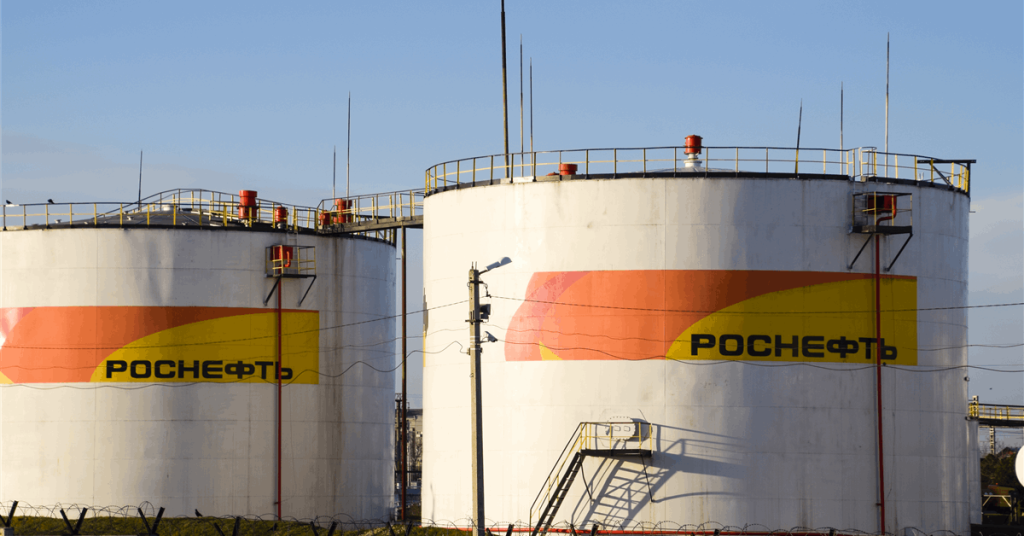Rosneft Oil Co. has reported RUB 2.28 trillion ($28.85 billion) in revenue for the first quarter (Q1), down 8.5 percent from the prior three-month period on weaker Urals crude oil prices.
The Russian state-owned integrated oil and gas company produced 3.68 million barrels per day (bpd) of liquid hydrocarbons in the January-March 2025 period, constrained by “challenging weather conditions in Central Russia, and oil production cap in compliance with the decisions of the Russian Government”, Rosneft said in an online statement. Gas output averaged 1.37 million barrels of oil equivalent (boe) a day, totaling 20.2 billion cubic meters (713.36 billion cubic feet).
“Greenfield projects in the Yamal-Nenets Autonomous District commissioned in 2022 account for around a third of the Company’s gas production”, Rosneft noted. In Q1 2025 it commissioned over 600 wells, 76 percent of which were horizontal.
On Saturday the Organization of the Petroleum Exporting Countries (OPEC) announced a total increase of 411,000 bpd for the July production of Russia and seven other OPEC+ members, accelerating the gradual return of 2.2 million bpd of voluntary cuts.
Meanwhile Rosneft’s refining volumes totaled 19.5 million metric tons, down quarter-on-quarter. “The refining volume trend is attributable to optimization of refinery utilization in view of the current pricing environment and demand, and the need for maintenance and repair works”, it said.
Rosneft sold 2.2 million metric tons of gasoline and diesel on the St Petersburg International Mercantile Exchange, 1.7 times the required volume, according to the company.
“In the reporting period, the Company operated in the context of continuous deterioration of the macroeconomic environment that included lower prices and wider discounts for Russia’s Urals crude oil, new sanction restrictions, as well as a stronger ruble”, commented Rosneft chair and chief executive Igor Sechin.
Earnings before interest, taxes, depreciation and amortization fell 15.5 percent sequentially to RUB 598 billion, with an EBITDA margin of 26 percent. Costs and expenditures rose 5.4 percent to RUB 1.93 trillion.
“In the first quarter of 2025, the Company’s EBITDA was under the additional pressure from rising transportation expenses due to the tariff indexation by the natural monopolies”, Sechin said. “For example, Transneft oil transportation tariffs have gone up by 9.9 percent since January 2025, while petroleum product transportation tariffs and freight railroad transportation expenses have increased by 13.8 percent since the end of 2024.
“Most natural monopolies tariffs, including even the tariffs imposed by the Russian Post, rise outstripping inflation: since early 2024, the price of sending an ordinary postal card has increased by 20 percent. Electricity tariffs were raised by 9.1 percent from July 2024 and are scheduled to be indexed by another 11.6 percent in July 2025.
“Moreover, in accordance with the updated socio-economic development forecast, in 2025, indexation of regulated gas prices, electricity tariffs, and tariffs of grid companies is planned to exceed the forecast inflation rate, accelerating cost inflation.
“In these circumstances, cost control remains our constant priority. In the first quarter of 2025, upstream lifting costs amounted to $3/boe in line with our strategic goal”.
Net profit attributable to shareholders landed at RUB 170 billion, up quarter-on-quarter but down year-on-year due to an increasing key interest rate.
The board is proposing RUB 14.68 per share for the final dividend on 2024 results, which would result in total annual dividends of RUB 51.15 per share.
At the end of the quarter Rosneft’s net debt to EBITDA ratio amounted to 1.36x, “significantly below the minimum covenant” under its loan agreements, the company said.
To contact the author, email jov.onsat@rigzone.com
element
var scriptTag = document.createElement(‘script’);
scriptTag.src = url;
scriptTag.async = true;
scriptTag.onload = implementationCode;
scriptTag.onreadystatechange = implementationCode;
location.appendChild(scriptTag);
};
var div = document.getElementById(‘rigzonelogo’);
div.innerHTML += ” +
‘‘ +
”;
var initJobSearch = function () {
//console.log(“call back”);
}
var addMetaPixel = function () {
if (-1 > -1 || -1 > -1) {
/*Meta Pixel Code*/
!function(f,b,e,v,n,t,s)
{if(f.fbq)return;n=f.fbq=function(){n.callMethod?
n.callMethod.apply(n,arguments):n.queue.push(arguments)};
if(!f._fbq)f._fbq=n;n.push=n;n.loaded=!0;n.version=’2.0′;
n.queue=[];t=b.createElement(e);t.async=!0;
t.src=v;s=b.getElementsByTagName(e)[0];
s.parentNode.insertBefore(t,s)}(window, document,’script’,
‘https://connect.facebook.net/en_US/fbevents.js’);
fbq(‘init’, ‘1517407191885185’);
fbq(‘track’, ‘PageView’);
/*End Meta Pixel Code*/
} else if (0 > -1 && 83 > -1)
{
/*Meta Pixel Code*/
!function(f,b,e,v,n,t,s)
{if(f.fbq)return;n=f.fbq=function(){n.callMethod?
n.callMethod.apply(n,arguments):n.queue.push(arguments)};
if(!f._fbq)f._fbq=n;n.push=n;n.loaded=!0;n.version=’2.0′;
n.queue=[];t=b.createElement(e);t.async=!0;
t.src=v;s=b.getElementsByTagName(e)[0];
s.parentNode.insertBefore(t,s)}(window, document,’script’,
‘https://connect.facebook.net/en_US/fbevents.js’);
fbq(‘init’, ‘1517407191885185’);
fbq(‘track’, ‘PageView’);
/*End Meta Pixel Code*/
}
}
// function gtmFunctionForLayout()
// {
//loadJS(“https://www.googletagmanager.com/gtag/js?id=G-K6ZDLWV6VX”, initJobSearch, document.body);
//}
// window.onload = (e => {
// setTimeout(
// function () {
// document.addEventListener(“DOMContentLoaded”, function () {
// // Select all anchor elements with class ‘ui-tabs-anchor’
// const anchors = document.querySelectorAll(‘a .ui-tabs-anchor’);
// // Loop through each anchor and remove the role attribute if it is set to “presentation”
// anchors.forEach(anchor => {
// if (anchor.getAttribute(‘role’) === ‘presentation’) {
// anchor.removeAttribute(‘role’);
// }
// });
// });
// }
// , 200);
//});

